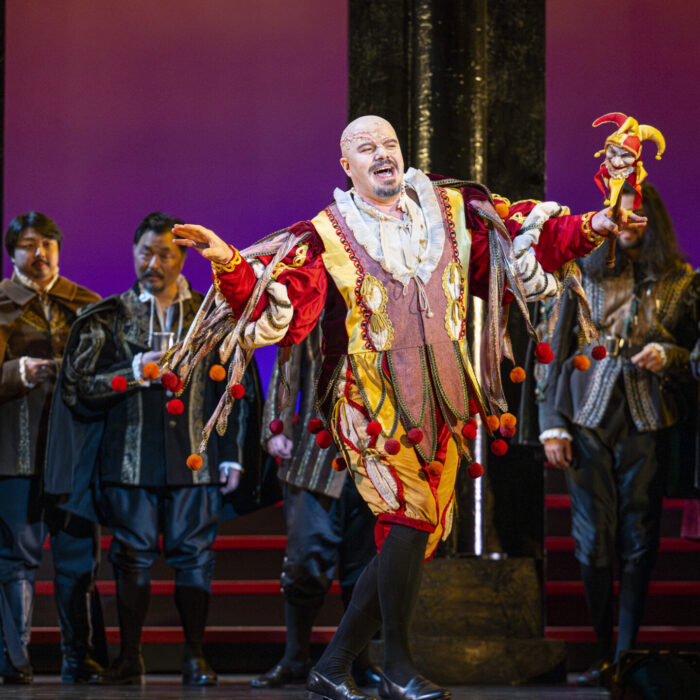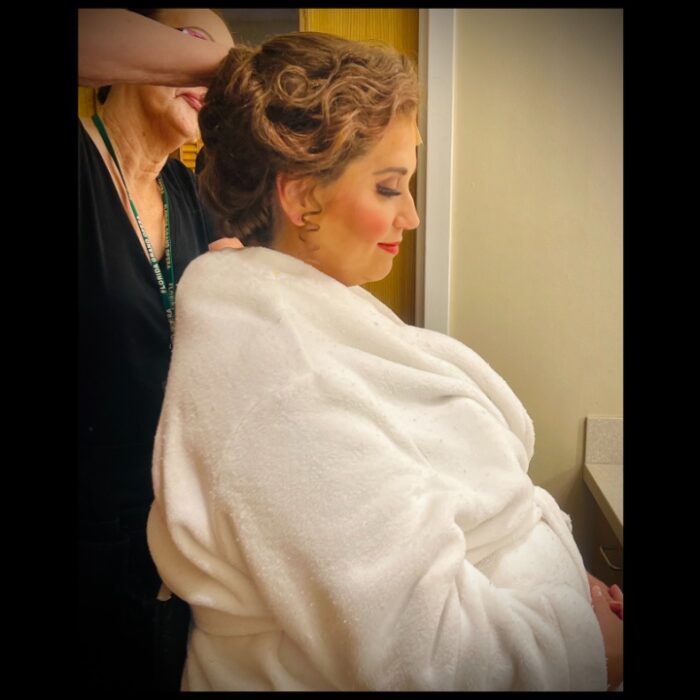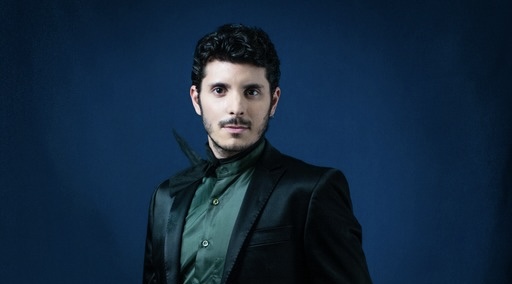
Q & A: Jason Duika on West Bay Opera, Verdi & Returning to the Stage
By Francisco SalazarFor over a year and a half, Jason Duika has not appeared on stage due to the pandemic. During that time, he found ways of performing and even founded his own company PorchOpera to create opportunities to reach audiences around his home.
But the time has now come for the baritone to return to the stage to open West Bay Opera’s season in “La Traviata.” Incidentally, this will also be his first-ever performance as Germont.
The baritone has previously appeared with the California company where he made his role debut as Francesco Foscari in “I Due Foscari” and the title role of “Nabucco.”
OperaWire recently spoke with Duika about his upcoming performances in “La Traviata,” his passion for Verdi, and his return to the stage.
OperaWire: What does it feel like to finally be able to perform again for a live audience? How did you keep yourself busy while not performing on stage?
Jason Duika: It certainly feels extraordinary, and rather surreal, after such a long time. Covid didn’t just eviscerate classical music’s’ “opera-tunities”, it created mental, physical, and health problems from the sheer stress of losing everything. My career was really burgeoning, then nothing… It takes time, and a lot of fortitude to bounce back from that. I applaud my colleagues for not giving up and not losing hope. I have seen such resilience, and such creativity in pushing through this, and it’s inspiring. I myself created “PorchOpera” with my Mother, which we trademarked, and I did four of them from my porch, in Dexter, Michigan, with my coach and my Dads wonderful keyboard, an amp, and just my voice, and a music stand, and people came in droves! It shows that they are open-minded enough to experience opera live and were starved for live performances.
OW: You’ll be opening the season for West Bay Opera. What is your relationship with the company? What excites you about opening the season?
JD: I have been fortunate to sing three previous roles there. Marcello in West Bay Opera’s “La Boheme” in October of 2018, and then returned in 2019, in January and sang the title role in Verdi’s “I Due Foscari” and again, for the last role I did pre-Covid, as my second Verdian lead role in “Nabucco.” It’s always exciting to be a part of an opening or any for that matter. “La Traviata” is one of my, probably everyone’s favorite Verdi operas, and I have covered the role, but not sung it, so I am very excited to sing my first. Though it’s not nearly as demanding as either “I Due Foscari” or “Nabucco” it is a wonderful supporting role and the music is just so beautiful!
OW: Tell me about Germont. How do you view him as a character?
JD: Germont is obviously a concerned father, but not wholly for his son or for himself, and an argument could be made that his motives are selfish ones. Being a first-timer, there’s an opportunity to explore the character and see what can be found. Alexander Dumas, who wrote one of my other favorites, “Le Comte de Monte Cristo”, wrote the book upon which “La Traviata” is based, and while it can be an important primer to a character, it’s not all. You can draw inspiration from that, but opera is a wholly different medium. I think too often, at least in certain previous productions I’ve seen, Germont can be directed to feel like he’s going after Violetta, and that I don’t understand. It’s what makes the Act two duet so heartbreaking for him. He comes in and thinks he’s just going to order her around, but soon discovers she is a passionate, lovely woman with real grit in the face of adversity. In his face, no less and that respect turns to love, and he even envisions her as the daughter he wishes he had. It makes the end practically unbearable as a parent, which I am not yet, but I do eventually hope to become, and so I will have to rely on instincts for now.
OW: What are the major challenges of this character and how does he compare to other Verdi roles you sing?
JD: Vocally, he is not easy, though I do not find him nearly as challenging as the aforementioned Verdi roles I’ve sung. Truthfully, he’s not nearly as hard as other Verdi roles, but there are points of difficulty one has to be prepared for technically, and have a thoughtful roadmap worked out for, such as Di provenza, which has very exposed portions. It can be an easier sing for lighter voiced baritones, but that’s not what Verdi intended. For example, people may not be aware that the first Germont was also the first Rigoletto, another role I’ve sung. Both are fathers, and require a specific gravitas, not only vocally, but also histrionically.
OW: What is your favorite musical moment in Germont’s part?
JD: I would have to say the aria is a lovely section to be sure, but it’s the duet, which is almost 19 minutes long, and just such a glorious one! Maybe THE most glorious duet for soprano and baritone in a Verdi opera. Although, I also love the duet from “Nabucco” with Abigaille, and the “Il Trovatore” duet with Leonora is a personal favorite as well.
OW: Have you worked with José Luis Moscovich? What are you looking forward to in the collaboration?
JD: Yes. I have enjoyed working with him previously on “La Boheme,” “I Due Foscari,” and “Nabucco.” I look forward to my first “La Traviata” out there this coming year!
OW: After “La Traviata,” what comes next for you? What are some of your future plans?
JD: Right now, like many of my peers I’m sure, managed or otherwise, the future is a little uncertain. I have important upcoming auditions in a lot of places, for many wonderful companies, but we will have to wait and see. Opera is a long career, and I am blessed to have a team that shall endure with me. My manager and teacher are both interested in the long game, not just short-term roles, and notoriety. It was Peter Randsman who first said I was a Verdi baritone, and I now have a much more macroscopic view of the journey I am on, and what that title really entails, and the responsibility of maintaining it. Andrea DelGiudice, my voice teacher has given and continues to give me important tools to keep my instrument in top working condition. I am approaching 40, and as I do, I can live so much more in this rep. I am also a voice teacher, and enjoy being a technician to my students, and enjoy that a great deal as well, not just as a supplemental career, but also as a way to give back and share what I have learned.


